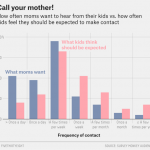The wheels have been set in motion for this year’s Ideological Turing Test, where Christians and Atheists imitate each other in order to understand each other better. You can contribute to the giant brainstorming thread and help pick the topic and format. (In year one, we did standards of evidence, year two: authority and aesthetics).
But speaking of shibboleths, I was delighted by the final word in the Scripps Spelling Bee: knaidel (meaning matzo ball or dumpling). No sooner the Merriam-Webster judges declared the victor than the kibbitzing began. Via the New York Times:
The preferred spelling has historically been kneydl, according to transliterated Yiddish orthography decided upon by linguists at the YIVO Institute for Jewish Research, the organization based in Manhattan recognized by many Yiddish speakers as the authority on all things Yiddish…
While most languages were formalized by national governments and their sanctioned language academies, Yiddish had no country and so relied on organizations like YIVO, which is the Yiddish acronym for Yiddish Scientific Institute and was based before World War II in what is now Vilnius, Lithuania. Experts like YIVO’s Max Weinreich and his son, Uriel, who compiled a Yiddish-English dictionary, set clear guidelines about how the language should be transliterated into English — though in that famously disputatious Jewish world those instructions were not always appreciated or obeyed.
For instance, rather than the “ch” in words like chutzpah and challah, the YIVO wordsmiths preferred “kh” because the “ch” could lead someone to a softer pronunciation, as in choice or chicken. YIVO uses the “kh” in words like khutspe (chutzpah), but most Yiddish speakers prefer the more popular variants.
Don’t worry. Amid all the controversy, the Times kept their eye on the ball and answered the question that had been burning within me since I heard the result:
Although he has never tasted a knaidel or a kneidl, [Arvind, the winner] will soon. He said his seventh-grade science teacher, Carol Lipton, had promised to bring one to school on Monday.
Since it was spelling bee season, the folks at Wonkblog explain why the bee is a uniquely American tradition.
One major reason is that spelling bees are only really challenging in English, a language that has borrowed lots of roots and words from other languages and has all sorts of odd vowel sounds and spelling irregularities. By contrast, a Spanish or German or Russian spelling bee would be boring — as soon as you can sound out a word, you can probably spell it.
Well, they may have easy to follow orthography, but we have The 25th Annual Putnam County Spelling Bee
http://www.youtube.com/watch?v=qxQSTA1WAiwAlas, since English lost its second person plural, we’ve had to compensate as best we can. So one new Bible translation decided to make the best of a bad lot:
It turns out there are at least 4,720 verses (2,698 in the Hebrew Bible and 2,022 in the Greek) with you plural translated as English “you” which could lead a reader to think it is directed at him or her personally rather than the Church as a community.
So I initially set out to develop a plugin for a Bible software project that would convert all “You plurals” to “Y’all” for my Bible project. I liked it so much I decided to create a Google Chrome extension that does the same thing for some popular Bible websites (youversion.com/bible.com, biblegateway.com, biblehub.com).
Though my southern friends always told me that “y’all” was second person singular and “all y’all” was the plural.
But framing and context matters. In a recent study by Bullock, Gerber, Hill, and Hueber (“Partisan Bias in Factual Beliefs About Politics“) the researchers found, as per usual, that committed partisans appear to live in separate worlds. When asked a series of factual questions with known answers, their answers diverge sharply.
But when study participants were told that their answers would be scored and that they’d be paid for each correct response, the gap narrowed. Some pundits were enthused, but Bryan Caplan was less optimistic:
Question for Bullock et al.: Are real-world democratic elections more like your treatment condition with incentives, or without? Given voters’ low probability of decisiveness, the answer is clear: Real-world democratic elections closely resemble the treatment without incentives. After all, if a voter votes under the influence of partisan bias, what happens to him? The same thing that would have happened if he voted responsibly.
The thing that delights me most about Bullock et al’s paper is that they took a “known” finding, tweaked the experimental design a little, and were about to figure out how much the previous results represented a stable feature of reality or was context dependent. The Pacific Standard has a nice feature piece on how behavioural economists took a standard experiment (the ultimatum game) global and found that responses varied more by culture than they expected.
Unfortunately, these slightly-tweaked experiments only get attention when they differ from the established wisdom. Reinforcing it through replication is usually treated as trivial. So maybe someone needs to find the specific context where social scientists are incentivized to pursue altruistic, rigorous error checking of older results. And then we need to raise all grad students in that context.
This last take is apropos of nothing but its own marvelousness. A group of people repurposed an entire Cold War destroyer ship in order to have a massive Battlestar Galactica LARP (live action role play). I heard about this last year, but since parts of it were going to be conducted in Swedish, I wept and had no excuse to buy a plane ticket. But now, they’re trying to come stateside. (Possibly on the boat?).
Believe you me, I have subscribed to their newsletter.
For more Quick Takes, visit Conversion Diary!













